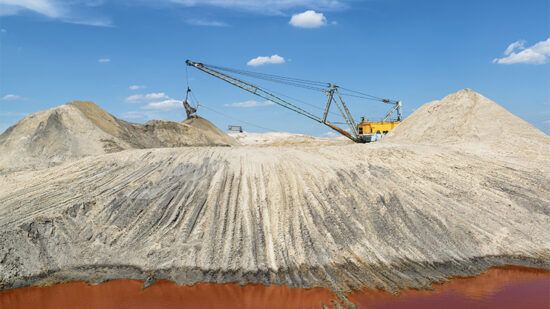Both direct and indirect investors in globally integrated supply chains face significantly increasing climate risks and extreme weather hazards, according to a report on global food supply chains commissioned by the First Sentier MUFG Sustainable Investment Institute.
The report – Climate Risk and Adaptation in Global Food – emphasises the world is on track to 2.5°C of global warming by 2050, and highlights that the Intergovernmental Panel on Climate Change (IPCC) has verified positive correlations between increased emissions and the increased occurrence of extreme weather hazards, posing increased risks for global food supply chains.
Extreme weather events such as temperature extremes, heavy precipitation and flooding are projected to cost an estimated $38trn in damages by 2050, and reduce agricultural yields up to 20% in a 2.5°C global warming by 2050 scenario.
In tandem with this, food demand is set to grow at 1.26% CAGR over the next decade, driven by population, economic and urbanisation growth, the report added. At the same time as pressure on them is rising, global food systems are becoming increasingly complex due to economic demand and changing diets, driving up costs of production in almost every region at a much faster pace than the rising population (0.7% per year).
Also read: 10 key trends shaping the future of global food production
The result of this is that global food systems supplying this increased demand will face a higher likelihood of insecurity and commercial losses, demonstrating the need for businesses and investors to take action to support food security, food system resilience and commercial returns.
Sudip Hazra, director of the First Sentier MUFG Sustainable Investment Institute, commented: “The world is racing towards crossing climate tipping points that threaten significant impacts on agricultural systems. Investor decision-making and engagement strategies concerning agricultural and food system companies, therefore, should consider incorporating these risks and adapting initiatives that can enhance food security, food system resilience, and commercial returns.
“There are opportunities for investors to facilitate a course correction in global food supply chains by incorporating physical climate risk into their investment decision-making. Investors can play a critical role in de-risking agricultural businesses from the escalating climate impacts by supporting their companies to consider and disclose the areas relating to best practice across a holistic reporting framework. This can include value chain maps outlining core partners and regions, relevant physical climate impacts, related risks and opportunities, and efforts to ensure business resilience.”
Hazra concluded: “This report highlights the routes investors can take to support action via mitigation and adaptation levers for climate-related global food supply chain risk. Ultimately, the world is currently on track to reach at least 2.5o of global warming by 2050, which will result in serious consequences for the global food supply chain. That is, unless we can quickly put measures in place to temper and adapt to the increasing risk. By engaging with their portfolio companies, wide sectors, policy makers, and civil society, investors can help shape agricultural value chains and facilitate positive outcomes.”
Earlier this month, an anonymous group of food industry professionals signed an open letter addressed to asset owners, bondholders and investors, warning them the food industry is unprepared to deal with volatility in food supply, and that several key factors have allowed the risk to reach critical levels. Sub-scale risk mitigation strategies, ill-equipped senior teams and boards, and insufficient consideration given to ‘long-term’ issues were all identified as threats to the resilience of the food industry.








